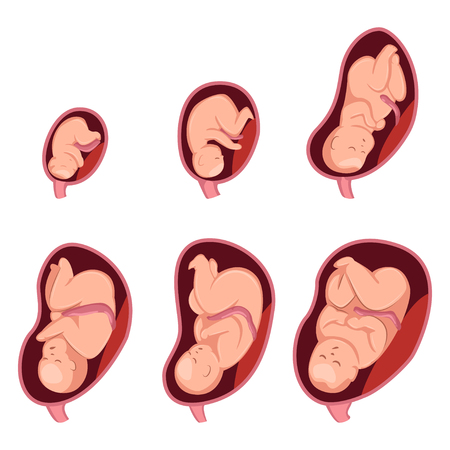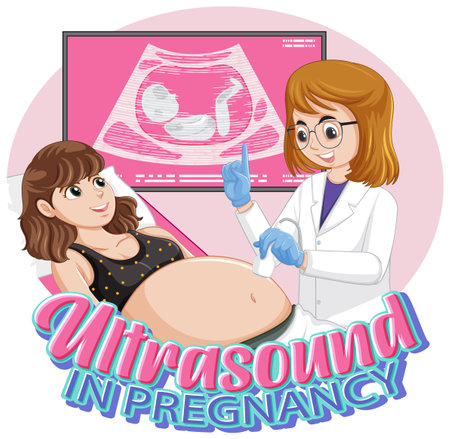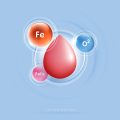Introduction to Post-Pregnancy Body Contouring
Welcoming a new life into the world is an extraordinary journey, but it also brings about significant changes to your body. For many women in the UK, regaining confidence in their post-pregnancy bodies becomes an important goal. Body contouring treatments offer a promising route to support this transformation, but true success lies in combining these procedures with mindful and tailored nutritional guidance. In this article, we’ll explore the journey of reclaiming your body after pregnancy, focusing on safe and effective strategies that amplify the results of body contouring treatments. With a nurturing approach rooted in British lifestyle and wellness practices, you can enhance both your physical well-being and self-esteem as you embrace this new chapter.
2. The Role of Nutrition in Recovery and Results
Post-pregnancy body contouring is not just about procedures; it is also profoundly influenced by what you nourish your body with each day. Understanding the connection between nutrition and your bodys recovery can empower you to achieve the best possible results while supporting your overall wellbeing. A balanced diet, rich in essential nutrients, lays the foundation for optimal healing and helps enhance the effectiveness of any body contouring efforts.
Supporting Your Body’s Healing Process
After pregnancy, your body undergoes significant changes and requires targeted support to repair tissues, regulate hormones, and restore energy levels. Nutrients such as protein, vitamins C and E, zinc, and healthy fats play a crucial role in cellular regeneration and immune function. By prioritising these elements in your meals, you encourage faster recovery and help maintain the integrity of your skin and muscle tone post-procedure.
Essential Nutrients for Recovery
| Nutrient | Benefits | UK-Friendly Food Sources |
|---|---|---|
| Protein | Tissue repair & muscle maintenance | Chicken breast, eggs, lentils, salmon |
| Vitamin C | Collagen production & immune support | Strawberries, broccoli, blackcurrants |
| Zinc | Cell growth & healing | Pumpkin seeds, chickpeas, red meat |
| Healthy Fats | Sustained energy & skin health | Avocado, olive oil, mackerel, walnuts |
The Impact on Body Contouring Results
A well-balanced diet does more than promote general health; it directly impacts how your body responds to contouring treatments. Proper nutrition ensures that your skin remains elastic and resilient during recovery, while also preventing unnecessary weight gain that could compromise your results. By consciously selecting nutrient-rich foods common in British diets—like fresh fish from local markets or seasonal berries—you are making choices that reflect both cultural familiarity and nutritional wisdom.
If you approach nutrition as an ally rather than a chore, you will find yourself building confidence not only in your appearance but also in your ability to nurture yourself gently through this transformative phase. Every nourishing meal is a step towards lasting results and renewed self-assurance.

3. Essential Nutrients for New Mums
When it comes to enhancing body contouring results after pregnancy, nourishing your body with the right balance of nutrients is absolutely vital. As a new mum in the UK, you are likely familiar with staple British foods—think porridge for breakfast, hearty vegetable soups, and the classic Sunday roast. But how do these favourites fit into a postnatal nutrition plan aimed at restoring energy, supporting wellness, and gently shaping your body?
Vitamins for Vitality
Your body has worked wonders bringing new life into the world, and now it needs replenishment. Vitamin D is especially important for mums in Britain, where sunlight can be scarce; consider oily fish like salmon or mackerel, fortified cereals, and eggs as excellent sources. Vitamin C from berries, citrus fruits, and leafy greens will help support tissue repair and immune health—essential while you recover and care for your baby.
Minerals That Matter
Iron is crucial for combating postnatal fatigue. Incorporate lean meats such as beef or lamb, lentils, spinach, and wholegrain breads—a nod to the beloved British sandwich. Calcium supports bone strength during breastfeeding; low-fat dairy like yoghurt and cheese are both practical and delicious additions to your daily meals.
Balanced Food Groups for Body Shaping
A well-rounded plate is key: focus on high-quality protein (chicken, fish, beans), slow-release carbohydrates (oats, brown rice, sweet potatoes), and healthy fats (avocado, olive oil, nuts). British staples like baked beans on wholegrain toast or a jacket potato with tuna tick all the boxes for nutrition and satiety. Don’t forget hydration—herbal teas or simply water with a slice of lemon can keep your energy steady throughout those busy days.
By mindfully choosing nutrient-rich foods that align with familiar British tastes and habits, you’re not only nurturing your wellbeing but also supporting gentle body shaping as you embrace motherhood’s next chapter.
4. Meal Planning and British-Friendly Food Choices
Creating nourishing meals after pregnancy is a wonderful way to support your body contouring results and rebuild your confidence. In the UK, we’re fortunate to have access to a variety of wholesome, locally-sourced ingredients that can make meal planning both enjoyable and effective. Here’s how you can make the most of British food staples while keeping nutrition and satisfaction at the heart of every meal.
Practical Meal Planning Tips
- Plan Ahead: Dedicate some time each week to map out your meals. This ensures balanced nutrition and reduces the temptation for less healthy choices.
- Batch Cooking: Prepare larger portions of hearty dishes like stews or roasted vegetables, which can be easily reheated and enjoyed throughout the week.
- Seasonal Shopping: Choose fruits and vegetables that are in season across Britain—this not only supports local farmers but also maximises freshness and flavour.
British Ingredient Inspiration
The key to wholesome post-pregnancy meals lies in using familiar, nourishing foods. Below is a table highlighting some classic British ingredients and their nutritional benefits:
| Ingredient | Nutritional Benefit | Meal Ideas |
|---|---|---|
| Oats | Rich in fibre for digestion and long-lasting energy | Porridge with berries, oatcakes with cheese |
| Root Vegetables (carrots, parsnips, swede) | Packed with vitamins and minerals for recovery | Roasted medleys, mash with herbs |
| Lean British Meats (chicken, turkey) | High-quality protein for muscle repair | Grilled fillets, homemade pies with lots of veg |
| Fish (salmon, mackerel) | Omega-3 fatty acids support overall health | Baked with lemon and dill, fishcakes |
| Cabbage & Kale | Excellent sources of iron and vitamin C | Sautéed as sides, added to soups or casseroles |
| Berries (strawberries, blackberries) | Rich in antioxidants for recovery and immune support | Topped on yoghurt or wholegrain cereals |
Satisfying Your Appetite Mindfully
- Build Balanced Plates: Aim for a combination of lean protein, whole grains, healthy fats, and plenty of colourful vegetables in each meal.
- Hydration Matters: Don’t forget traditional British teas or simply water with fresh lemon—keeping hydrated aids digestion and energy levels.
- Treat Yourself Kindly: Allow yourself occasional treats such as a slice of homemade fruit loaf or a small serving of dark chocolate—balance is key to long-term success.
Your Confidence-Boosting Takeaway
Nourishing your body with thoughtfully chosen British ingredients can play a vital role in enhancing your post-pregnancy body contouring results. Enjoy exploring new recipes, embrace seasonal produce, and remember: every wholesome meal is a step towards feeling stronger, more energised, and confident in your journey ahead.
5. Hydration and Its Impact on Body Contouring
Staying properly hydrated is a cornerstone of effective body contouring, especially after pregnancy. Water not only supports metabolic processes and aids in the removal of toxins but also helps maintain skin elasticity—vital for those looking to enhance their post-pregnancy silhouette. In the UK, it’s generally recommended to aim for around 6–8 glasses (roughly 1.5–2 litres) of fluids daily, though individual needs may vary based on activity level and climate.
Why Hydration Matters
Good hydration ensures your body can efficiently process nutrients, promote fat metabolism, and support muscle recovery—all crucial elements in reshaping your figure after childbirth. Dehydration can lead to fatigue, sluggish metabolism, and even hinder skin recovery, making it harder to achieve your desired results.
Practical Tips for Daily Water Intake
If you find plain water uninspiring, there are plenty of British beverage options that contribute to your hydration without compromising your health or goals. Herbal teas—such as peppermint or chamomile—are naturally caffeine-free and hydrating. Sparkling water with a splash of fresh lemon or cucumber offers a refreshing twist. While classic English breakfast tea is a staple, opt for decaffeinated versions if you’re sensitive to caffeine or breastfeeding.
Choosing the Right Drinks
It’s wise to limit sugary drinks, high-caffeine coffees, and sweetened cordials, as they can counteract your progress and add unnecessary calories. Instead, embrace traditional British infusions or make your own fruit-infused water at home for added flavour without the sugar hit. Remember, alcohol should be consumed mindfully or avoided altogether during this phase of recovery and transformation.
By prioritising hydration alongside balanced nutrition, you’ll set a strong foundation for achieving lasting body contouring results while supporting your overall health and wellbeing post-pregnancy.
6. Mindful Eating and Sustainable Habits
Adopting mindful eating practices is a powerful tool for supporting your body contouring journey after pregnancy. Rather than focusing solely on calorie counting or restrictive diets, mindful eating encourages you to pay close attention to your body’s hunger and fullness cues. This approach not only helps prevent overeating but also nurtures a positive relationship with food, which is essential for long-term wellbeing.
Embracing Mindfulness at Mealtimes
To begin with, try to eat without distractions—put away your phone, turn off the telly, and savour each bite. Notice the textures, flavours, and aromas of your food. Slowing down at mealtimes allows your brain to catch up with your stomach, so you’ll naturally recognise when you’re satisfied rather than stuffed.
Listening to Your Body’s Needs
After pregnancy, your nutritional requirements may shift as your body heals and adapts. Listening to what your body genuinely needs—whether that’s more water, an extra portion of greens, or simply a moment of rest—can help you make balanced choices that support both your health and aesthetic goals. Trust in your body’s signals; they’re usually spot on.
Building Lasting, Sustainable Habits
Remember, lasting results come from consistency, not perfection. Small changes—like including more whole foods in your meals or enjoying occasional treats without guilt—create habits that are sustainable well beyond the initial post-pregnancy period. Over time, these mindful approaches become second nature and provide a solid foundation for maintaining your enhanced contours and overall vitality. Approach each day with self-compassion and patience; you’re doing brilliantly on this journey towards feeling confident and nourished in your own skin.


